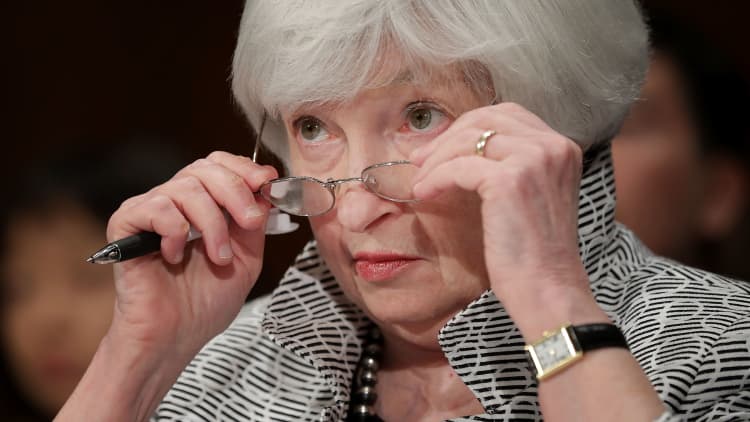
Interest rate hikes are now going to take a back seat as the Federal Reserve turns its attention to reducing its balance sheet, bond guru Bill Gross told CNBC on Wednesday.
The central bank indicated at the conclusion of its two-day meeting on Wednesday that it would begin winding down its $4.5 trillion balance sheet "relatively soon." It also unanimously declined to raise interest rates.
"The Fed is now off of raising short-term interest rates, that is fed funds, maybe not even in December," the Janus Henderson Advisors fund manager said in an interview with "Power Lunch."
"They're on to now reducing the balance sheet, because they want a positive yield curve."
The yield curve refers to the relationship between short-term and long-term interest rates. The balance-sheet reduction, known as quantitative tightening, affects the long end of the curve, while interest rates affect the short end.
While a positive yield curve has a lot of benefits, a flat yield curve can ultimately cause a recession, said Gross.
"It's very important, I think, in a levered economy not to have a flattening yield curve from this point forward and I think the Fed is beginning to believe that," he said.
Meanwhile, once that unwinding begins, don't expect it to have too much of an effect on the stock or bond market, Gross said.
That's because of the pace of the move, which he noted some Fed officials have said was going to be "something like watching paint dry."
"It's more symbolic than real in terms of its effect on the market," Gross said.
Efforts to reduce the balance sheet will entail allowing a capped level of proceeds from the bond portfolio to run off each month. The rest will be reinvested as usual.
The program will start at $10 billion a month and increase quarterly to $50 billion.
— CNBC's Jeff Cox and Evelyn Cheng contributed to this report.


